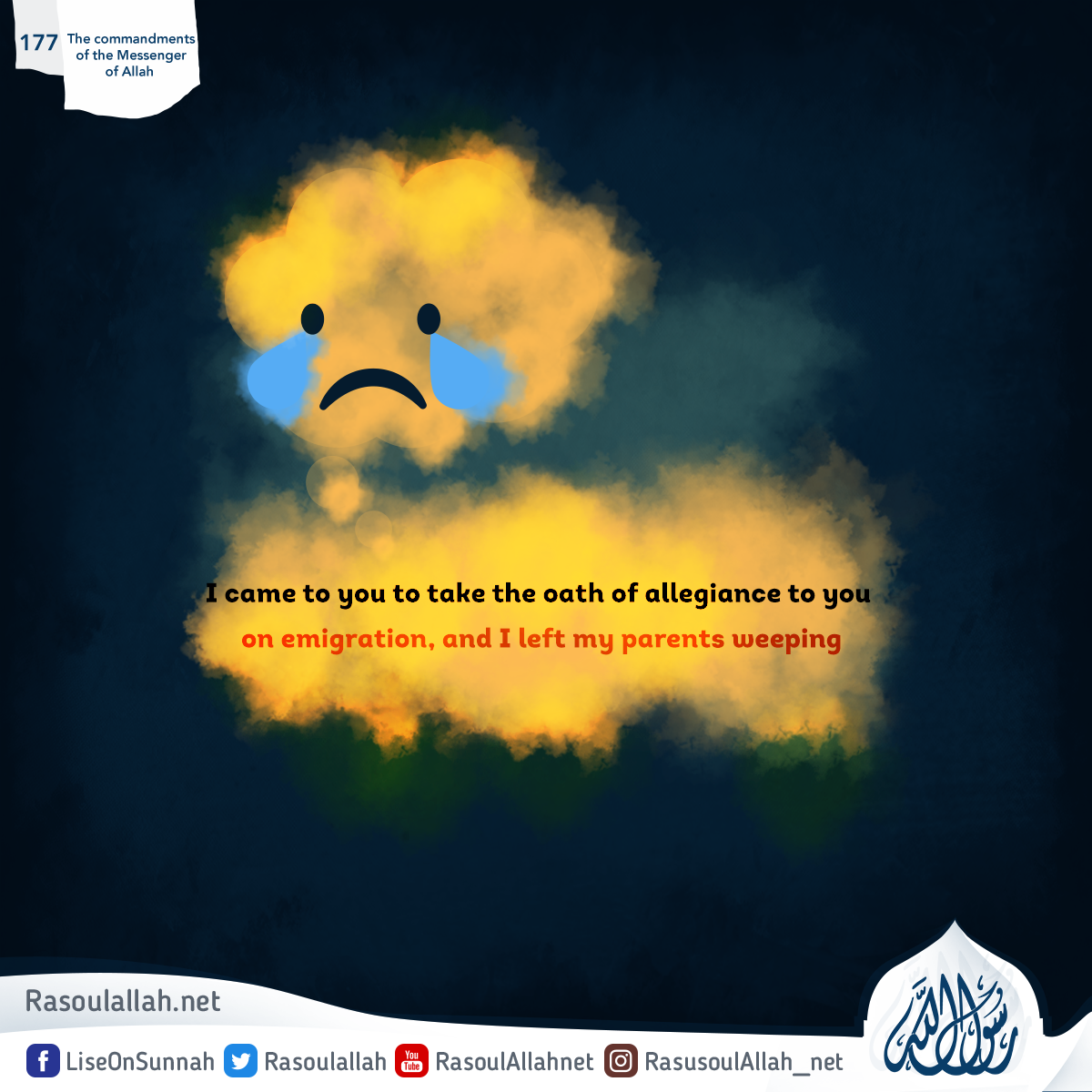I came to you to take the oath of allegiance to you on emigration, and I left my parents weeping.

Narrated Abdullah ibn Amr ibn al-'As may Allah be pleased with him:
A man came to the Messenger of Allah ( may the peace and blessings of Allah be upon him ) and said: I came to you to take the oath of allegiance to you on emigration, and I left my parents weeping. He (the Prophet) said: Return to them and make them laugh as you made them weep.
The migration from Mecca to Madina was obligatory upon every Muslim capable of its expenses and consequences. Allah opened its door after the second pledge of alligiance of the Ansar, this was about thirteen years after the mission of the Prophet Muhammad may the peace and blessings of Allah be upon him. The Muslims were commanded to migrate to Madina until after the conquest of Mecca when the Messenger of Allah, may the peace and blessings of Allah be upon him, said: “There is no emigration (after the conquest of Makkah), but only Jihad (striving in the path of Allah) and some intention. So when you are summoned to go forth (for Jihad), go forth.”
Al-Ansar has promised to support him if he migrated to them, and prevents him from his enemy as they prevent themselves and their children and women, and then he migrated to them after many of his companions migrated.
A man came to give him the oath of allegiance to emigrate, as many of his companions pledged. He said: I came to you to take the oath of allegiance to you on emigration, and I left my parents weeping. This word had a deep effect on the feelings of the Messenger of Allah. He replied, with the inspiration of Allah: " Return to them and make them laugh as you made them weep."
Meaning: Go back to them with your heart and your body and do your best to treat them kindly, so that they will be pleased with you and allow you to emigrate if they wish.
This commandment has several benefits:
It is a part of the Prophetic ettiquets that the child tries to please his parents in every matter he intends to do. As well the child must relieve their grief whenever they look sad because he is responsible for their psychological conditions as he is responsible for their living conditions.
Islam is keen to ensure that every person gets his full undiminished rights.
The parents have rights over their child and he must perform them within his capacity. On the other hand the child has rights over his parents.
The balance of justice in this religion is to give the due rights just as one is obliged to fulfill the duties. This commandment sheds the light on the rule: In case if two obligatory matters opposed then the Muslim has to give preference to the most important of them.

